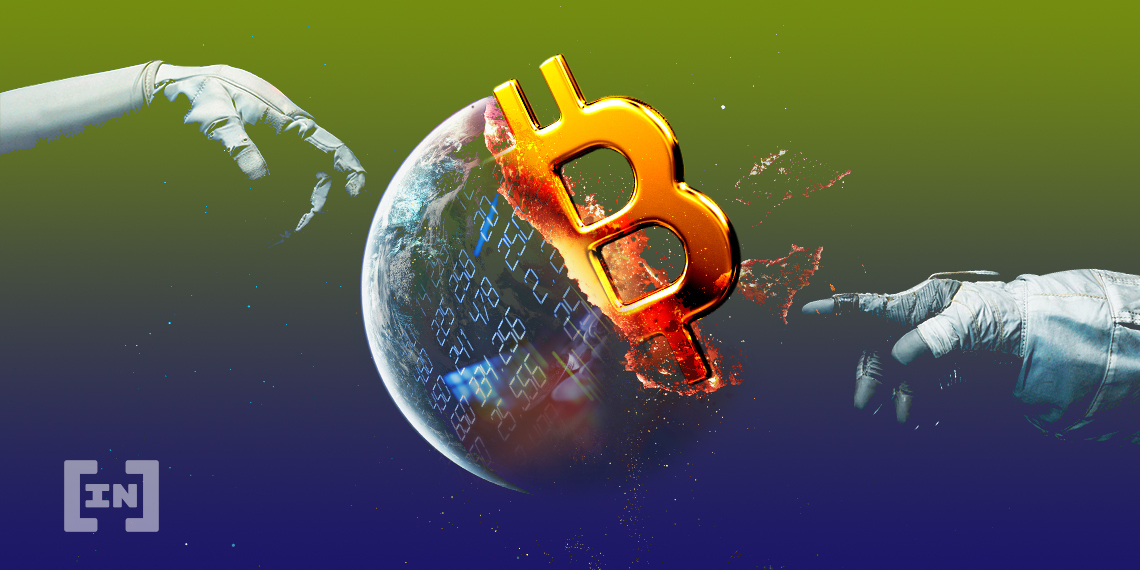2021-2-5 00:19 |
As Feb. 8 is drawing nearer, the date for ether (ETH) futures to be listed on the Chicago Mercantile Exchange (CME), a splash of interest to ETH itself can’t go unnoticed. More and more analytical pieces keep popping up on the internet to prove that the altcoin will surely hit a new all-time high.
Undoubtedly, these rumors are heating up the market and propel the price even more. But we should all keep in mind that the futures listing itself isn’t going to make an immediate impact. Moreover, before Feb. 8, we may even watch the price drop. And here are a few reasons why.
First, I want to remind you that the CME hasn’t received official permission to launch ether futures.
The odds of this happening on the day specified by the CME officials are extremely low. Why? Well, as far as we know, the inauguration of Joe Biden as the US 46th President took place on Jan. 20, 2021. The old team stepped down with the blistering pace, and the Biden administration took over the government.
A new commissioner of the Commodity Futures Trading Commission (CFTC) has been appointed, among all. All the rearrangements and internal alignment among departments may protract the permission issuing.
We also can’t obviate the possibility of the permission not being granted at all. The newly appointed US Secretary of the Treasury, Janet Yellen, has already suggested a strict regulatory policy for the cryptocurrency market.
Chris Brummer is expected to become the next chair of the CFTC. Now-former chairman Heath Tarbert is known for his loyalty to the crypto industry and particularly to ether. In a mere attempt to dismantle Donald Trump’s policy, the government’s stance on ETH might be revised. That’s the first reason why the price correction is possible.
Those who think this turbulence will be over as soon as Biden’s team has settled obviously forgot that the things had been ambiguous before.
Transition to the proof-of-stake algorithm may change ETH’s statusThe CFTC announced their willingness to approve an ether futures contract in May 2019. And after that announcement, they have reminded us about their intention a couple of times.
In October 2019, CFTC chairman Tarbert, in an interview on cryptocurrency regulation at the Yahoo! Finance All Markets Summit in New York, stated that ether was a commodity and would fall under the jurisdiction of the CFTC.
Earlier in 2018, the US SEC also declared that ETH wasn’t a security. Back then, it sparked little to no interest among market players, which seemed natural, given that institutional inflow at that time was scarce. Besides, back then, the ethereum market was much smaller than that of bitcoin.
However, in November 2019, Tarbert admitted that crypto involved in staking based on a proof-of-stake (PoS) algorithm might fit into securities laws. The launch of Ethereum 2.0 and transition to the PoS algorithm as a consensus mechanism may change the altcoin’s status.
In this case, ETH will fall under the SEC’s jurisdiction and face additional legal issues. Uncertainty in ethereum’s status may put on hold the pending decision to permit futures.
Even if the CME is granted permission to launch futures regardless of all the risks mentioned above, it won’t drive an instant price surge. The whole buzz around ether futures on the CME reminded me of the story when the market was waiting for Bakkt to launch.
More interest in bitcoinEveryone expected it would push the price forward, but instead, the trading volume appeared to be low compared to other existing platforms. Here, we may trace a sort of analogy with ethereum: ether futures were launched on other platforms a while ago, including regulated ones, although in other jurisdictions. Therefore, the market demand for this instrument seems to have been satisfied.
Of course, futures are expected to open access to trading ETH for institutional investors from the US. But for now, institutional players seem to be far more interested in bitcoin. The data from CoinShares shows that even though there is a record-high inflow of investments in funds and crypto-based products, 97% still go to bitcoin.
One more example is the launch of bitcoin futures on the CME in December 2017. From the very beginning, the turnover was extremely low. During the first years, the CME was being beaten by other exchanges, according to many trading indicators. It outperformed others and took the leading position only in 2020.
By the time of ether futures launch, we are not expecting any substantial progress or update of the Ethereum blockchain, although Ethereum developers have suggested a new fee model and now work on its implementation.
But the change pushed transaction fees to quite an uncomfortable level and sparked indignation among miners who had repeatedly postponed its acceptance.
DeFi services remain the driving force behind the ETH ecosystemTo sum up, the increase of exciting sentiments around ETH without any reasonable grounds may cause a price correction. Ethereum’s recovery will depend mainly on the further development of the blockchain and the whole ETH ecosystem.
DeFi services remain the driving force behind its ecosystem, but it’s evident that attention to them grows weaker. The growth that everyone keeps talking about today is tightly linked to the BTC price surge and a significant rise of ETH itself, which has increased the worth of staked funds in dollar terms.
The new fee model is expected to foster further development of the ecosystem and make the work of DeFi platforms more profitable and alluring for users.
It will create an environment for a stable growth of ETH. Even with the current fees, we witness the increase of the transaction volume in the network, reflecting the demand for the whole blockchain. But in the short-term, ETH’s price spike might be correlated with bitcoin, overall positive sentiment on the market, and rising interest in tokenized stocks.
The post Why ETH Price May Drop After Feb. 8 appeared first on BeInCrypto.
Similar to Notcoin - Blum - Airdrops In 2024
ETH/LINK Price Action Candlestick Set (LINKETHPA) на Currencies.ru
|
|


































